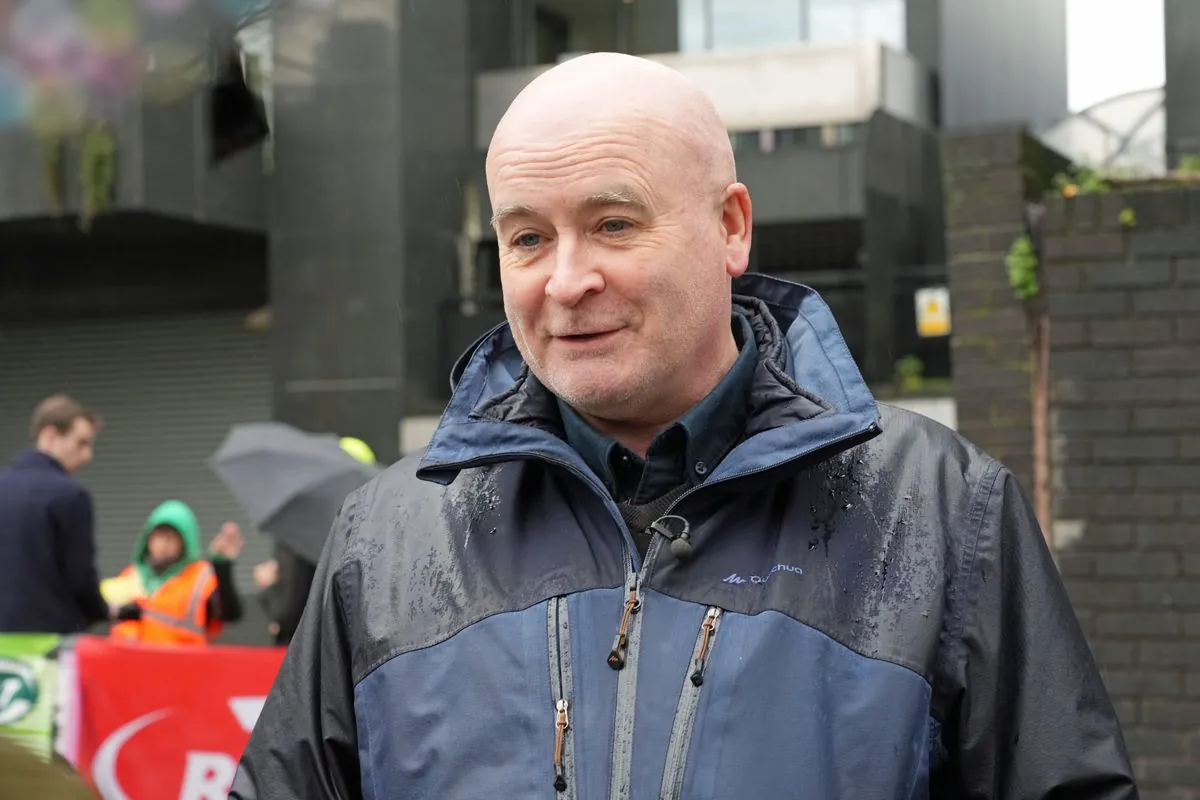Mick Lynch, general secretary of the RMT union, has advocated for a significant expansion of union influence across the UK economy. Speaking at a Labour Party conference fringe event, Lynch expressed his vision for union power to reach levels not seen since the 1970s and 1980s.
Lynch stated, "The problem at the moment is that the unions are not in every sector, effectively. We're not in every workplace." He emphasized the need for unions to influence non-unionized workplaces, drawing parallels to the labor landscape of past decades.
This call for expanded union influence comes at a time when union membership in the UK has significantly declined from its peak of 13.2 million members in 1979. The current union density stands at 23.1% as of 2021, reflecting the challenges faced by the labor movement in recent years.
The RMT leader's comments coincide with recent developments in Labour-union relations. The party has negotiated several pay deals with sector unions, aiming to resolve ongoing strikes should they form the next government. Notably, train drivers recently accepted a deal offered by Louise Haigh, the Transport Secretary, reportedly worth 15% over three years.
Lynch praised Haigh and Angela Rayner as "leading individuals" in the party's workers' rights agenda. This positive relationship between Labour and unions harkens back to the party's roots, as it was founded by trade unions in 1900.
"I am proud to stand here as the first Chancellor in 14 years to have delivered a meaningful, real pay rise to millions of public sector workers."
However, the strengthening ties between Labour and unions have drawn criticism from opposition figures. Sir Iain Duncan Smith, former Conservative party leader, accused Labour of being "prisoners to the unions," suggesting that a future Labour government might resemble Harold Wilson's administration more than Tony Blair's in terms of union influence.
The debate over union power in the UK economy is not new. The 1970s saw significant industrial action, including the "Winter of Discontent" in 1978-79. Subsequently, Margaret Thatcher's government introduced several laws to limit union power in the 1980s, including restrictions on secondary picketing and closed shops.
As the UK grapples with modern economic challenges, including the rise of the gig economy, the role of unions continues to evolve. The call for universal union influence raises questions about the future of labor relations and economic policy in the country.
